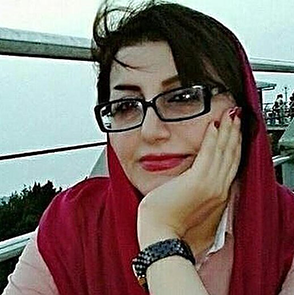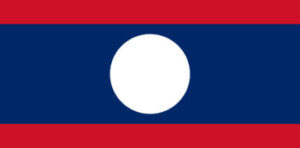The following is based on a communication written by the UN Special Rapporteur on Human Rights Defenders and other UN experts to the Government of the Russian Federation on 24 November 2021. The Government responded to the letter on 19 January 2022. The communication remained confidential for 60 days before being made public. At the time of publication, the Government’s response was undergoing translation.
Since the communication was written, both International Memorial Society and Human Rights Center “Memorial” were liquidated. The below is a shorter version of the original communication.
BACKGROUND
Topic: the involuntary liquidation of the human rights organisations International Memorial Society and Human Rights Center “Memorial”, as well as recent federal legislation that was signed into effect in December 2020, further expanding the list of actors that can be designated “foreign agents” to include unregistered NGOs and individuals, regardless of nationality.
International Memorial Society (“International Memorial”) is an international association of non-governmental organisations and individuals. It conducts research, monitors and documents human rights violations, promotes access to information including on past human rights violations, the development of civil society and democracy, and carries out educational activities.
Human Rights Center “Memorial” (“HRC Memorial”) is a Russian non-governmental organisation. It conducts research, monitors, documents and publicises human rights violations, engages in human rights education, promotes access to information, including on past repressions, defends vulnerable groups whose rights are systematically violated, and provides a platform for debate and free legal assistance to victims of social, ethnic or religious conflicts, refugees, displaced and internally displaced persons.
We previously wrote to the Russian Government regarding International Memorial and HRC Memorial in four communications sent on 20 June 2014 (RUS 5/2014), 14 November 2014 (RUS 9/2014), 7 February 2018 (RUS 3/2018) and 14 January 2020 (RUS 9/2019). Replies were received to all.
ALLEGATIONS
The Ministry of Justice included HRC Memorial on the state register of “foreign agent” non-governmental organisations on 21 July 2014, and International Memorial on 4 October 2016, subjecting both of them to the requirements of the Foreign Agent Law, including additional reporting and marking their materials.
On 11 November 2021, International Memorial received a letter from the Supreme Court informing themthat on 8 November 2021 the Prosecutor General’s Office had filed a lawsuit seeking their liquidation over repeated violations of the Foreign Agent Law.The lawsuit claimed that the organisation and its leadership carried out their activity “with repeated gross violations of the Constitution of the Russian Federation and federal laws” and “committed a flagrant violation of citizens’ rights”.To substantiate the accusation, the Prosecutor General’s Office referred to twenty administrative fines imposed on the organisation and its leadership in late 2019-2020 for failure to mark some of its materials (several webpages, social media posts and books) as produced by “foreign agent”.The court hearing regarding International Memorial’s liquidation is scheduled for 25 November 2021.
On 12 November 2021, HRC Memorial received information from the Moscow City Court that on 8 November 2021 the Moscow City Prosecutor’s Office filed a similar lawsuit against them. The Moscow City Prosecutor’s Office referred toeight administrative fines imposed on the organisation and its leadership in late 2019-2020 for failure to mark some of its materials (several webpages and social media posts) as produced by “foreign agent”, as well as some reporting violations in 2015-2020.
The lawsuit also stated that some of the HRC Memorial’s materials justified extremism and terrorism. The materials in question included the guidelines regarding the interpretation of the term “political prisoner” (formulated on the basis of Resolution 1900 (2012) of the Parliamentary Assembly of the Council of Europe) and the lists of people HRC Memorial considered “political prisoners” based on their research. The materials also included five publications about terrorism and extremism cases analysed by HRC Memorial, in which they outlined the signs of falsifications, torture, and violations of the right to a fair trial. HRC Memorial’s case analysis include the following disclaimer: “The recognition of a person as a political prisoner or persecuted on political grounds does not mean that HRC Memorial agrees with their views and statements, nor does it endorse their statements or actions”. Also, the definition of a “political prisoner” used by HRC Memorial explicitly excludes anyone who encouraged violence or committed a violent offence.
The preliminary court hearing regarding HRC Memorial’s liquidation was scheduled for 23 November 2021.
On 12 November 2021, state-controlled television channel NTV issued a report accusing the organisations of supporting terrorists and “radical groups” and serving dangerous “sects”.
CONCERNS
In the communication we expressed serious concern at the liquidation proceedings brought against International Memorial and HRC Memorial, which appear to be aimed at preventing the organisations from continuing their human rights work and levied against them in response to such work, including research and publications on human rights issues and commemoration of past violations. Moreover, the actions taken against them appear manifestly disproportionate in regard to the irregularities upon which they are, for the most part, based.
We also reiterate our concern about the consistently negative effects of the implementation of the Foreign Agent Law and call for its repeal or substantial amendment, to bring it in line with the Russian Federation’s human rights obligations. In particular, we remain concerned about the highly detrimental impact of the Foreign Agent Law on civil society, within a broader crackdown on human rights defenders and civil society organisations, particularly those with dissenting opinions, exercising their rights to freedom of association and freedom of opinion and expression in the country.
The 2020 and 2019 reports of the Secretary-General on cooperation with the UN in the field of human rights noted the effects that restrictive legislation, in particular laws on “foreign agents” or “undesirable organizations,” have had on the willingness and ability of civil society actors to engage with international bodies, especially with the UN. These include the N 121-FZ Foreign Agent Law for Non-Commercial Organizations, adopted in July 2012 and amended in June 2016 (N 147-FZ and N 179-FZ). It also includes several pieces of federal legislation that were signed into effect on 30 December 2020 further expanding the list of actors that can be designated “foreign agents” to include unregistered NGOs and individuals, regardless of nationality. Reportedly, media is prohibited from publishing any information about such NGOs and unregistered public associations without indicating that they are included in the register of “foreign agents.” Federal Law No. 538-FC reportedly introduced a five-year prison sentence for libel, which had been criminalized in 2012, and Federal Law No. 525-FZ reportedly introduced criminal liability for malicious violation of the duties of a “foreign agent” with a penalty of up to five years in prison. On 5 April 2021, Bills No.1052327-7 and 105895-7 were adopted and published, reportedly introducing amendments and penalties for non-compliance with the norms mentioned above. The operations of civil society organizations have reportedly been subject to particular scrutiny, specifically their receipt and use of foreign funding. The High Commissioner for Human Rights, in her oral update to the Human Rights Council on 25 February 2021, regretted the entry into force in late 2020 of new legal provisions further limiting fundamental freedoms and the growing expansion of the definition of ‘foreign agent.’ Reportedly, the enforcement of the aforementioned legislation, as well as the new pieces of federal legislation, have further contributed to self-censorship and reluctance of civil society to engage with the UN. While some civil society organizations have continued to cooperate with the UN, including from outside the country, some human rights defenders reportedly decline international attention, including by the UN, to their issues or situations for fear of retaliation.



